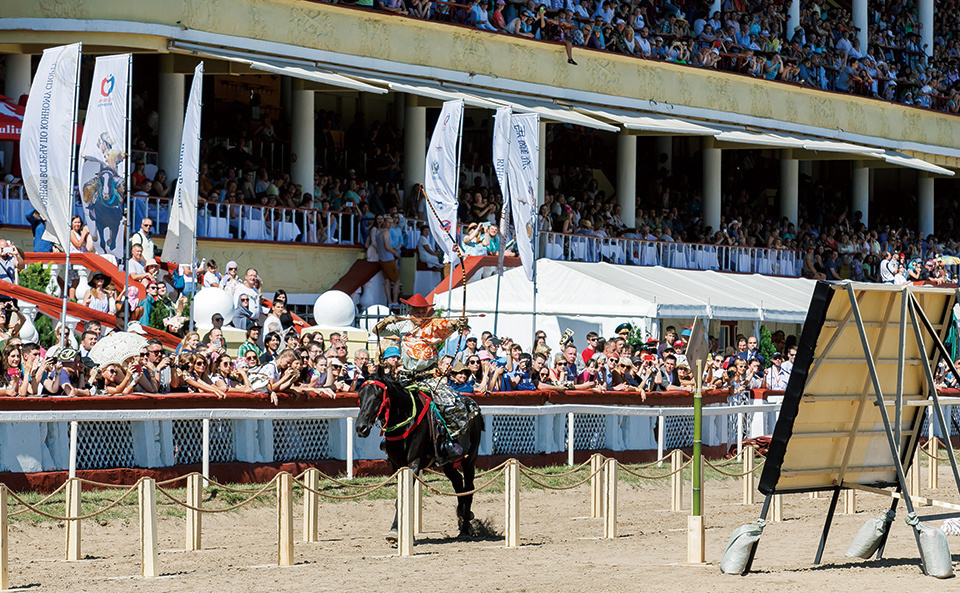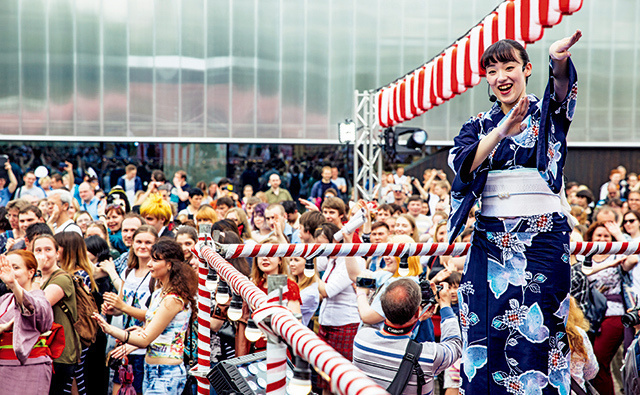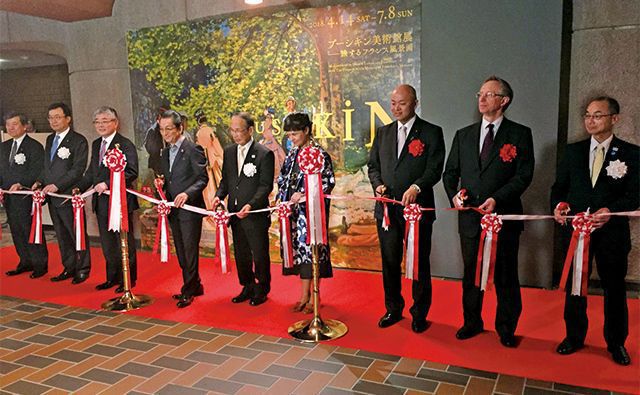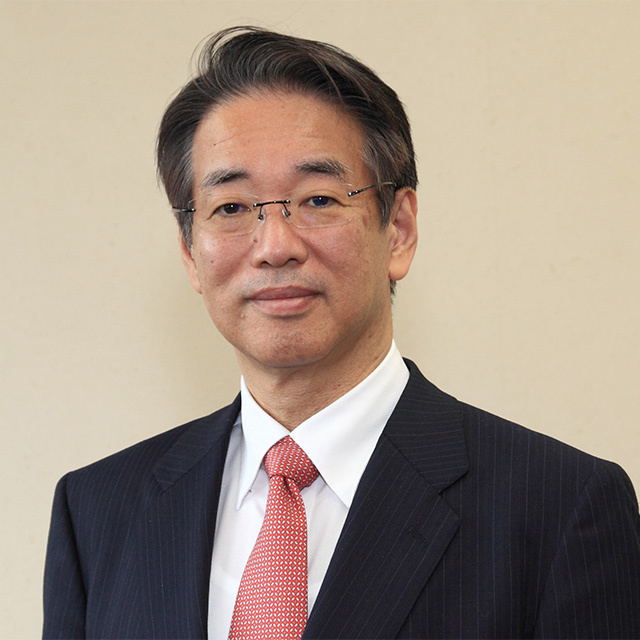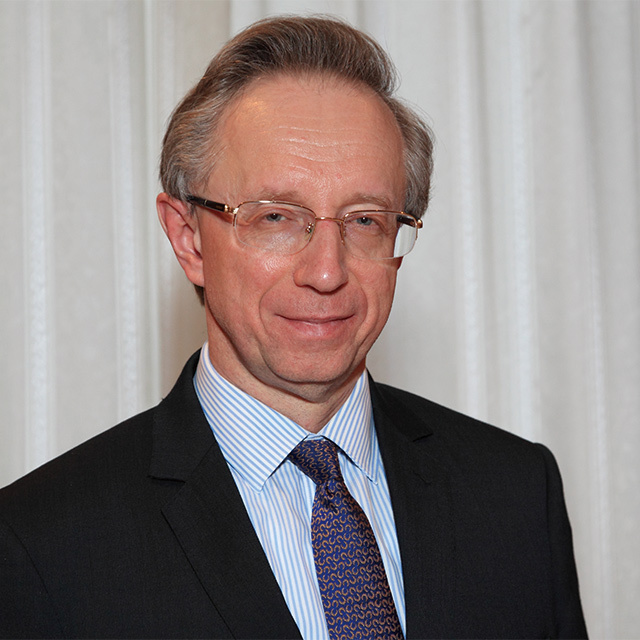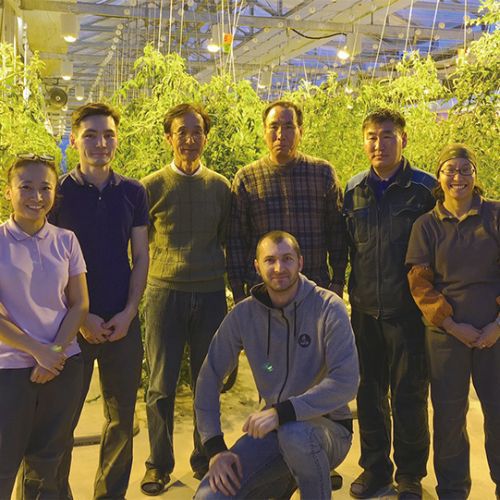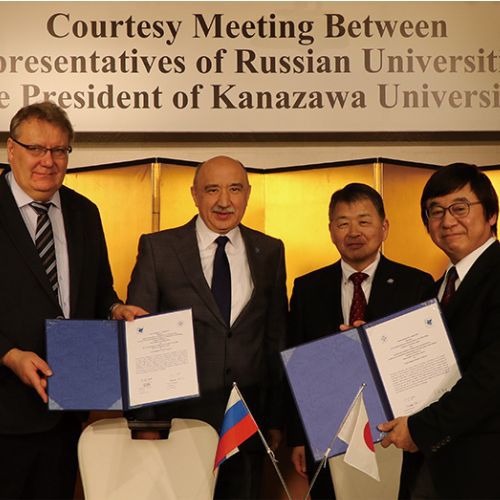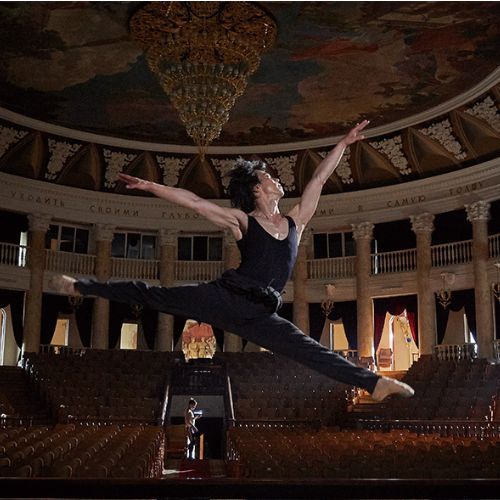“For developing close partnership between Russia and Japan, cooperation in the personal sphere, people-to-people interactions, and cultural, scientific, and educational exchange are especially valuable. Improving our relationship in these fields will be achieved through the activities of both nations in this Russia-Japan cross cultural year of 2018—of that I am certain.”—Russian President Vladimir Putin emphatically expressed this sentiment at the Japan-Russia joint press conference on December 16, 2016.
In July 2017, a Japanese culture festival based on the concept of Japanese summer festivals was held in Gorky Park in central Moscow. Following the lead of Japanese dancers on the stage, Russians joined in the traditional bon odori dance. In 2018, which is “Japan Year in Russia,” the festival is scheduled to be held again along with a variety of other Japan-related events.
As part of point eight of the Eight-Point Cooperation Plan, “Fundamental expansion of people-to-people interaction,” the two nations are holding “Japan Year in Russia” and “Russia Year in Japan,” respectively. These events are being held nationwide in each country, with the aim of expanding relations between Japan and Russia in the fields of politics, trade, economics, culture, and interregional exchange, and are expected to increase the bonds of friendship and mutual understanding between the people of both countries.
As far as specific exchange events are concerned, the Russian cities of Moscow, Saint Petersburg, Vladivostok, Khabarovsk, and Yuzhno-Sakhalinsk have already hosted Japanese taiko drum concerts and other performances, while Moscow has also had events conveying the charms of Japan’s various local regions, all to positive reviews. Prime Minister Abe plans to participate in an opening ceremony for the year of exchange held at the Bolshoi Theatre in Moscow at the end of May and directly introduce the attractiveness of Japan to the Russian people. For the summer onward, there is a diverse range of events planned, including performances of Shochiku Grand Kabuki, an exhibition of masterpiece paintings from the Edo period that includes pieces designated as National Treasures and Important Cultural Properties, and a demonstration of yabusame horseback archery. Furthermore, a “Russian Cultural Festival in Japan” and a variety of other events are planned in Japan as well.
As part of the Russian Cultural Festival, a special exhibition featuring pieces belonging to the Pushkin State Museum of Fine Arts was held first at the Tokyo Metropolitan Art Museum and later at the National Museum of Art, Osaka. The ribbon cutting ceremony at the Tokyo Metropolitan Art Museum was attended by Ambassador of the Russian Federation to Japan Mikhail Y. Galuzin and Parliamentary Vice-Minister for Foreign Affairs Manabu Horii.
Toyohisa Kozuki, Ambassador of Japan to the Russian Federation, is full of hope regarding these efforts. “Russia is an important partner country in the Asia-Pacific region. But in spite of our countries being neighbors, many Russians don’t know all that much about Japan, and public surveys have shown that Japanese people also lack understanding of Russia. Few Japanese people know about the beauty of Russia’s natural landscapes, for example, which I’ve grown to love through my hobby of photography. As expressed by the slogan of Japan Year in Russia, ‘This Is the Japan You Don’t Know About,’ a major goal for this project is to get as many Russians as possible more familiar with our country. We hope that the efforts of this year of mutual partnership will create a better environment for taking on the issues that both countries share.”
Similarly, Ambassador of the Russian Federation to Japan Mikhail Y. Galuzin emphasizes, “This Japan-Russia exchange project isn’t limited to just one area like politics or economics, but covers many different ones. We’re also comprehensively promoting this effort on the private-sector level. I hope that these efforts will deepen the mutual understanding between the people of both countries and that we will keep building a positive bilateral relationship on an even firmer foundation. In order to ultimately conclude a Japanese-Russian peace treaty, it is necessary for the people of Russia and Japan to build a true relationship of trust and come to an agreement. This project will contribute towards that goal.”
2018 is set to become an important turning point in the relationship between Japan and Russia, and will allow the two neighbors to nurture bonds of friendship.
Toyohisa Kozuki
Ambassador Extraordinary and Plenipotentiary of Japan to the Russian Federation. Born in Tokyo in 1956. Assumed his current position in 2015, after having previously served as Director of the Russian Division of the European Affairs Bureau, as Deputy Chief of Mission, Minister, Embassy of Japan in Russia, as Director-General of the European Affairs Bureau, and as Deputy Minister at the Ministry of Foreign Affairs of Japan.
Mikhail Y. Galuzin
Ambassador Extraordinary and Plenipotentiary of the Russian Federation to Japan. Born in Moscow in 1960. Assumed his current position in January 2018, after having previously served as Minister-Counsellor at the Embassy of Russia in Japan, Director of the Third Asia Department at the Ministry of Foreign Affairs of Russia, and Ambassador to Indonesia.

























